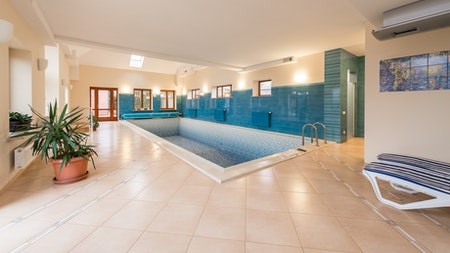Factors that are commonly top of mind when purchasing new property or planning a new development is prime location, best use of space, budget and resell value. Perhaps not as much thought is put into the flooring aspect, either it’s selected for its look and feel or most developers’ choice could be influenced by cost.
“Considering that floors are the ‘visible foundation’ of any building and for various environments can impact on noise levels, heating, hygiene and where luxury is the selling point, aesthetics, more thought should go into selecting the correct floor type,” says Pieter De Beer, Sales Director at Industroclean, a manufacturer of industrial cleaning products and machines.
“It is important to understand the maintenance and cleaning processes required for the selected floor type as there can be costly complications further down the line,” De Beer adds.
Various factors are impacting current flooring trends. Covid has changed the way buildings are used and with the continued shift to work from home these changes will continue to impact commercial and residential spaces, specifically retail and hospitality industries.
Another impact, as a result of the pandemic is the increase in cleaning routines. With more people living, working, and learning from home and consumers having become more conscious of the cleanliness of their environments especially when out in public, this could drive the demand for more resilient flooring types in residential and commercial sectors. Clean floors not only look good but can influence consumers’ perception of a facility’s hygiene standards and reputation as a business.
When planning buildings, different floor types usually form part of discussions between developers and architects with flooring suppliers able to provide the flooring option influenced by aesthetics and budget.
It is however important that the maintenance requirements for the selected floor type are understood, what looks pretty might not be very durable. Applying a life cycle costing method could save money further down the line.
For example, while retail and commercial environments are commonly fitted with hard floor types such as polished or glazed porcelain and ceramics which are both very durable, applying the incorrect cleaning processes can result in damage and shortening the lifespan of the tiles. Facility Managers might be pressured to implement water saving methods but on the other hand, borehole or grey water used to clean floors could contain a range of minerals that would require an acidic cleaning product to remove the build-up that will occur over time.
In healthcare facilities, while floors are not as high-touch as other surfaces, contaminants on the floor can transfer to other surfaces very easily. Limiting the spread of germs is a trend that could impact the sale of resilient floor types as cleanability, and hygiene are important in these environments. Vinyl which is cost effective and insulates noise is a popular choice of flooring in hospitals. Luxury vinyl tiles (LVT) are a multi-layered, waterproof, resilient floor type and has the aesthetic of wood but is also attractive in terms of price and in addition is easy to clean and very durable.
The growth in e-commerce operations has led to a spike in investment in warehouse space. Concrete floors are the most common floor type in these spaces. While industrial floors appear simple in design and construction, they should possess key qualities such as be hard-wearing, capacity to carry large and heavy loads and require low maintenance as downtime can be costly. If cleaning is done by an in-house team, it would make economic sense to invest in suitable sweeping, scrubbing and vacuuming systems.
When approaching or appointing cleaning contractors make sure they understand the characteristics of the floor, have knowledge of the correct protective products, and can advise on daily, interim, and restorative cleaning practices.
“What might be considered a damaged floor could be the result of a pro-longed incorrect approach to cleaning, this is where Industroclean can offer advice accordingly,” De Beer concludes.
Issued by HWB Communications Pty Ltd on behalf of Industroclean



